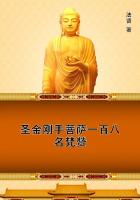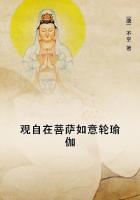"He had no intention," he said, "to force himself upon the Master of Ravenswood's hospitality; he was in the honourable service of bearing a message to him from a friend, otherwise the Master of Ravenswood should not have had reason to complain of this intrusion.""Let it be short, sir," said the Master, "for that will be the best apology. Who is the gentleman who is so fortunate as to have your services as a messenger?""My friend, Mr. Hayston of Bucklaw," answered Craigengelt, with conscious importance, and that confidence which the acknowledged courage of his principal inspired, "who conceives himself to have been treated by you with something much short of the respect which he had reason to demand, and, therefore is resolved to exact satisfaction. I bring with me," said he, taking a piece of paper out of his pocket, "the precise length of his sword; and he requests you will meet him, accompanied by a friend, and equally armed, at any place within a mile of the castle, when I shall give attendance as umpire, or second, on his behoof.""Satisfaction! and equal arms!" repeated Ravenswood, who, the reader will recollect, had no reason to suppose he had given the slightest offence to his late intimate; "upon my word, Captain Craigengelt, either you have invented the most improbable falsehood that ever came into the mind of such a person, or your morning draught has been somewhat of the strongest. What could persuade Bucklaw to send me such a message?""For that, sir," replied Craigengelt, "I am desired to refer you to what, in duty to my friend, I am to term your inhospitality in excluding him from your house, without reasons assigned.""It is impossible," replied the Master; "he cannot be such a fool as to interpret actual necessity as an insult. Nor do Ibelieve that, knowing my opinion of you, Captain, he would have employed the services of so slight and inconsiderable a person as yourself upon such an errand, as I certainly could expect no man of honour to act with you in the office of umpire.""I slight and inconsiderable?" said Craigengelt, raising his voice, and laying his hand on his cutlass; "if it were not that the quarrel of my friend craves the precedence, and is in dependence before my own, I would give you to understand----""I can understand nothing upon your explanation, Captain Craigengelt. Be satisfied of that, and oblige me with your departure.""D----n!" muttered the bully; "and is this the answer which I am to carry back to an honourable message?""Tell the Laird of Bucklaw," answered Ravenswood, "if you are really sent by him, that, when he sends me his cause of grievance by a person fitting to carry such an errand betwixt him and me, I will either explain it or maintain it.""Then, Master, you will at least cause to be returned to Hayston, by my hands, his property which is remaining in your possession.""Whatever property Bucklaw may have left behind him, sir,"replied the Master, "shall be returned to him by my servant, as you do not show me any credentials from him which entitle you to receive it.""Well, Master," said Captain Craigengelt, with malice which even his fear of the consequences could not suppress, "you have this morning done me an egregious wrong adn dishonour, but far more to yourself. A castle indeed!" he continued, looking around him;"why, this is worse than a coupe-gorge house, where they receive travellers to plunder them of their property.""You insolent rascal," said the Master, raising his cane, and ****** a grasp at the Captain's bridle, "if you do not depart without uttering another syllable, I will batoon you to death!"At the motion of the Master towards him, the bully turned so rapidly round, that with some difficulty he escaped throwing down his horse, whose hoofs struck fire from the rocky pavement in every direction. Recovering him, however, with the bridle, he pushed for the gate, and rode sharply back again in the direction of the village.
As Ravenswood turned round to leave the courtyard after this dialogue, he found that the Lord Keeper had descended from the hall, and witnessed, though at the distance prescribed by politeness, his interview with Craigengelt.
"I have seen," said the Lord Keeper, "that gentleman's face, and at no great distance of time; his name is Craig--Craig--something, is it not?"
"Craigengelt is the fellow's name," said the Master, "at least that by which he passes at present.""Craig-in-guilt," said Caleb, punning upon the word "craig,"which in Scotch signifies throat; "if he is Craig-in-guilt just now, he is as likely to be Craig-in-peril as ony chield I ever saw; the loon has woodie written on his very visnomy, and I wad wager twa and a plack that hemp plaits his cravat yet.""You understand physiognomy, good Mr. Caleb," said the Keeper, smiling; "I assure you the gentleman has been near such a consummation before now; for I most distinctly recollect that, upon occasion of a journey which I made about a fortnight ago to Edinburgh, I saw Mr. Craigengelt, or whatever is his name, undergo a severe examination before the privy council.""Upon what account?" said the Master of Ravenswood, with some interest.
The question led immediately to a tale which the Lord Keeper had been very anxious to introduce, when he could find a graceful and fitting opportunity. He took hold of the Master's arm, and led him back towards the hall. "The answer to your question," he said, "though it is a ridiculous business, is only fit for your own ear."As they entered the hall, he again took the Master apart into one of the recesses of the window, where it will be easily believed that Miss Ashton did not venture again to intrude upon their conference.















